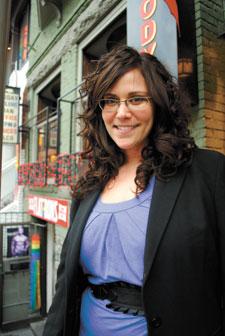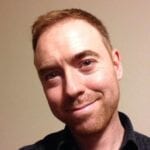Two years after the Lesbian and Gay Community Appeal Foundation morphed into the Community One Foundation, Julie Wajcman has been named the organization’s new director of development.
Wajcman grew up in Montreal. Following her graduation from Concordia University in 2006 with a BA in communication studies, she worked in film production, assisted the senior producer on Canadian Idol and spent last summer working in artist relations at Pride Toronto. She laughs at the suggestion that her new job is a step down from a glamorous life in TV and hanging with pop stars.
“I got bottles of water for Kelly Rowland,” she laughs. “I was running the catering, the water, schlepping here and there.”
Since its creation in 1980, Community One, then commonly called The Appeal, has channelled donor money into hundreds of gay community health, arts and activist programs.
Following the organization’s 2008 transformation, Wajcman says, “we’re broadening our approach and fundraising efforts to have a more inclusive and more united community…. We need to raise our funding and our granting capabilities.”
Wajcman promises “innovation” in upcoming fundraising efforts as the non-profit group strives to “grant in areas of education, health, human rights, arts and culture, research” in areas like Durham and North York and to an increasing array of ethnic and -demographic groups.
But in casting its net ever wider, trying to be all things to all people, does Community One run the risk of diluting its effectiveness?
“Our mission statement is clear,” Wajcman says. “We promote the inclusion of the many sub–communities within our larger LGBTTIQQ2S community.”
All those letters spill from her tongue with flawless, rehearsed ease, but Wajcman seems sincere when she insists, “it’s what makes our community unique. Our grants committee is made up of people with many different sexualities, different sexual orientations, and in helping each different sub-community within the whole, we strengthen our beautiful and dynamic community.”
Expressing herself, says Wajcman, has never been a problem, even if she doesn’t leap to identify her own particular community.
“I don’t identify as lesbian. I identify as unique!” she laughs. “I love that a lot of people are taking back the word ‘queer’ and that so many different generations of the community can associate with the word. It’s got a little bit of an ‘anything goes’ sound.”
The labels, she insists, are “not as important as accepting people who are transitioning, or coming out of the closet, or strongly gay and wearing it proudly on their chest.”
She says she has chosen to live near her job on Church St.
“The young female community generally lives in Parkdale, and the more settled women’s community with homes and children are over in Leslieville. So I said, you know, I really don’t want to commit, so I ended up in Boys’ Town, close to the action,” she laughs.


 Why you can trust Xtra
Why you can trust Xtra


